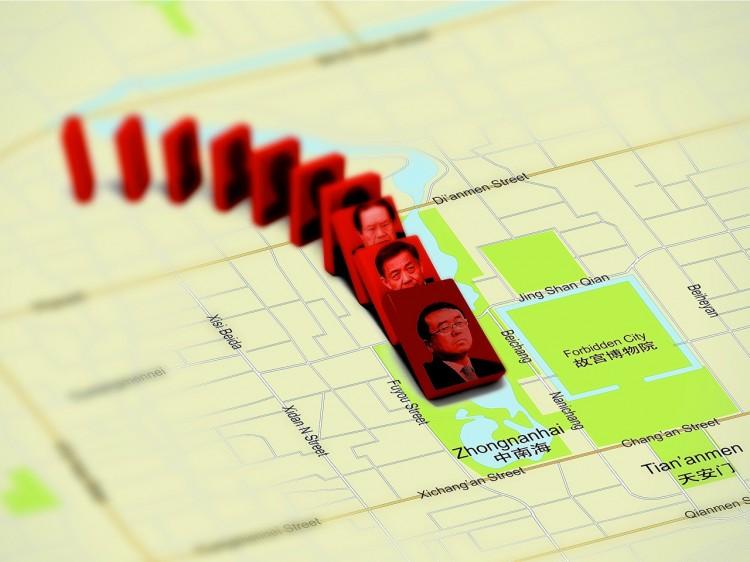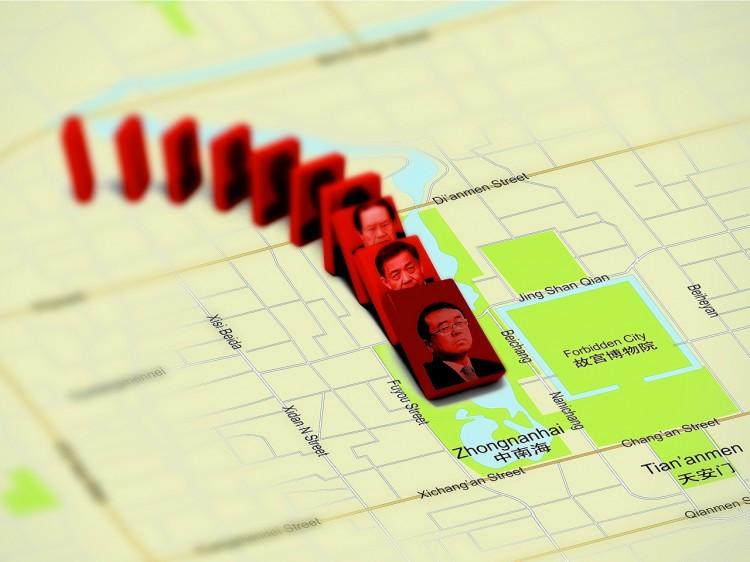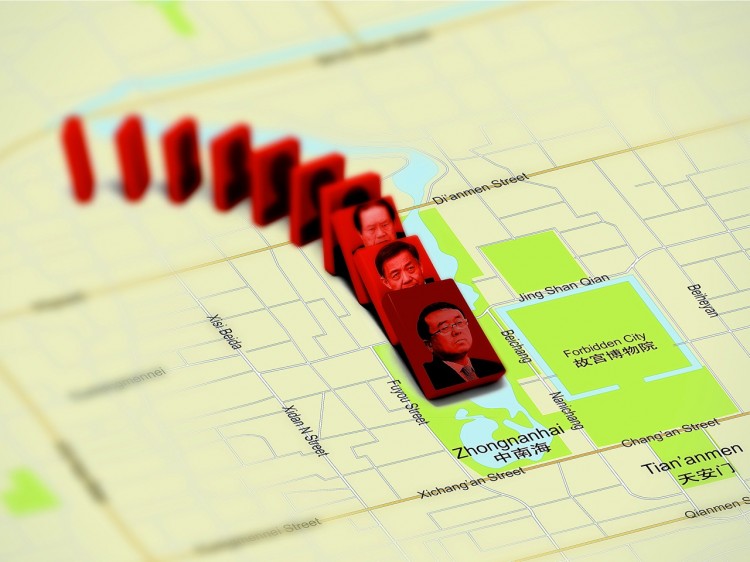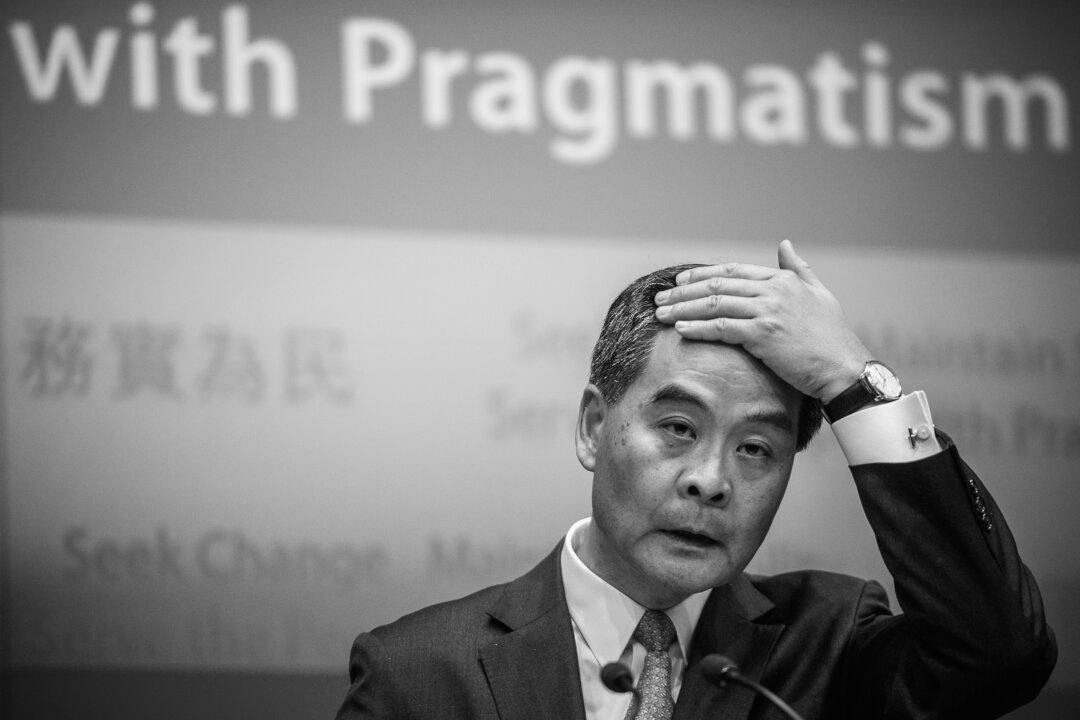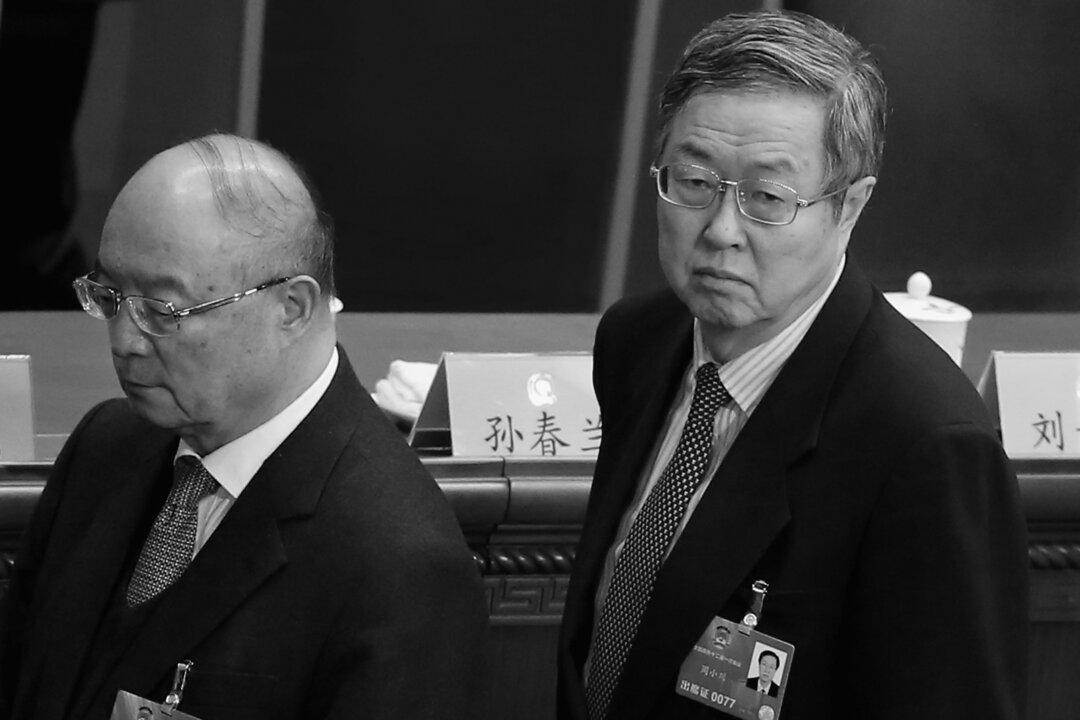Xi Jinping, the presumed next head of the CCP, tried to withdraw from assuming leadership of the Party, but was convinced to stay on by Party elders, who feared the warring factions could not agree on anyone else but him. This article explores why he did this. This is Part 1 of the series; you can read Part 2 HERE.
News Analysis
A 13-year power struggle at the top of the Chinese Communist Party (CCP) has come to a head, and the leaders of the CCP have now arrived at a moment of decision.
The sense of expectation is widespread. As the Wang Lijun-Bo Xilai affair has played out, with one revelation after another laid bare before the Chinese people, they have started to awaken and now seek to know the truth that lies behind events.
The Study Times, the publication of the CCP’s Party School—the place leaders of the Party are trained, wrote in an article on July 2 that China is facing “major changes never seen in the past three thousand years.”
At this moment, all eyes are looking to the trial of Bo Xilai to see how he will be punished. The situation is intricate. Relying on sources familiar with discussions at the highest levels of the Party, The Epoch Times reports this developing story.
Bo Xilai was the Party head of the province-level city of Chongqing in central-western China and a leader of the left-wing in the Party. Wang Lijun was Bo’s deputy mayor, police chief, and henchman. When Wang informed Bo of the guilt of Bo’s wife, Gu Kailai, in the murder of the British businessman Neil Heywood, Bo demoted Wang and rounded up those close to the police chief, killing a few of them.
Fearing for his life, Wang fled to the U.S. Consulate in Chengdu on Feb. 6. His attempted defection exposed to the Chinese people the struggles going on at the top of the CCP’s leadership.
Punishment for Bo soon followed. On March 15 he was removed from his Party posts and then subjected to the abusive Party interrogation called shuanggui. After months of suspense and conflicting signals, on Sept. 28 the state-run media reported Bo would be stripped of his Party membership and tried in a criminal court for “serious discipline violations” relating to corruption and sexual improprieties.
The publicly announced charges are a gambit by a divided leadership still not ready to settle things. The top Party leaders know what Wang revealed after Chengdu: Bo, along with domestic security czar Zhou Yongkang, had planned a coup to grab power from presumptive next head of the Party Xi Jinping. The Party leaders also know that Bo is a key figure behind a mass atrocity: the forced, live organ harvesting from Falun Gong practitioners.
The fate of Bo is the crux of the long-running struggle between the current Party chief Hu Jintao, Premier Wen Jiabao, Xi Jinping and their supporters on the one hand and the faction formed by former CCP head Jiang Zemin on the other. That battle now involves all current high-level CCP officials and retired statesman.
Avoiding Accountability
Jiang Zemin’s decision to persecute the spiritual practice of Falun Gong (also known as Falun Dafa) is the core issue that has led to today’s Party struggle.
Falun Gong was first publicly taught in northeastern China in May 1992. The practice involves doing slow-motion, meditative exercises and living according to teachings based on the principles of truthfulness, compassion, and tolerance. It became wildly popular. By 1999, state authorities estimated that between 70 and 100 million people had taken up Falun Gong—more than there were members of the CCP.
When Jiang launched the campaign to eradicate Falun Gong in July 1999, he expected it to be over in three months. By the time he was scheduled to retire in 2002, though, Falun Gong showed no signs of being wiped out.
This posed a problem. Jiang’s campaign had put the CCP at war against approximately one in twelve Chinese. Millions had been sent to labor camps, where they were tortured and brainwashed. Thousands of those had been murdered by the abuse. Thousands more had been killed through forced, live organ harvesting.
If Jiang or those loyal to Jiang were not in power, then the crimes committed in the persecution would be exposed and the members of Jiang’s faction would be held accountable. The struggles behind the scenes surrounding the 16th Party Congress in 2002, the 17th Party Congress in 2007, and the upcoming 18th Party Congress have all turned around the attempt by Jiang’s faction to hold onto power and so avoid being called to account.
In 2003 Hu Jintao became the General Secretary of the CCP, but for a long time he would not hold real power. Jiang Zemin, as Chairman of the Central Military Commission, still called the shots.
In addition, with Jiang’s longtime fixer Zeng Qinghong as vice-chair of the CCP, Hu Jintao and Premier Wen Jiabao had difficulty getting their writ to extend beyond the walls of the Party compound of Zhongnanhai.
After Jiang completely retired in 2004 and Hu became the Chairman of the Central Military Commission, Hu only had authority to promote Major Generals.
Regarding Falun Gong, Hu and Jiang had different views.
To sustain the persecution against Falun Gong practitioners, the CCP has spent huge amounts of money and has brought the Chinese legal system to the point of collapse.
Former deputy director of the Police Bureau Liu Jing said that during one meeting in 2001 Jiang wanted to add a 610 Office (the 610 Office is an extra-constitutional Party organ established by Jiang to carry out the persecution of Falun Gong. It has authority over every level of the Party and the state) at every level of the police system.
Hu said, “adding 610 Offices will add many people and cost a lot.”
Jiang became furious and yelled at Hu in a remark that revealed Jiang’s fear of the peaceful spiritual practice, “Falun Gong is about to usurp your power, and you are talking about personnel and budget?” Hu stayed quiet after that.
After an assassination attempt on Hu in 2006, the balance started to turn in Hu’s favor.
In May 2006, Hu Jintao went to the Yellow Sea to inspect the fleet. During the inspection, machine guns from two warships opened fire on the guided missile destroyer Hu was on, killing five seamen.
The destroyer fled the area at top speed. To avoid further assassination attempts, Hu didn’t return to Beijing, but flew to the southwestern province of Yunnan. He only returned to Beijing a week later.
Afterward, Hu Jintao started to solidify his control over the military, starting from Beijing, then to the Central Military Commission, and then to Chongqing.
Read More: The Struggle Over Xi
Struggle Over Xi
In the high-stakes game being played between Jiang and Hu, the next key moves involved determining the makeup of the Politburo Standing Committee—the body of nine men who run the CCP— and who would be Hu’s successor, both to be announced at the 17th Party Congress in 2007.
Bo’s stalwart Zeng Qinghong was forced to retire from the Standing Committee. Hu Jintao favored bringing on Li Keqiang, then the head of the CCP in Liaoning Province, and Xi Jinping, then the head of the CCP in Zhejiang Province. Hu got both onto the Standing Committee and wanted Li Keqiang named as his successor.
Jiang and Zeng continued to block Hu Jintao and were unwilling to let Li Keqiang step up to power. Jiang did not have anyone on the Standing Committee he could name in Li’s place, and so he reluctantly put forward Xi Jinping.
Hu Jintao and Premier Wen Jiabao had no problem accepting Xi Jinping, as they shared a common outlook. All three considered themselves students of Hu Yaobang, the Party General Secretary who helped bring economic reform to communist China, and who favored political reform.
Jiang’s nomination of Xi, however, was a ploy. Jiang was playing for time.
Jiang’s real hopes were pinned on Bo Xilai. Bo had developed the “Chongqing Model,” a political program that claimed to improve law and order by cracking down on gangs and to revive the status of the CCP by encouraging Maoist expressions of devotion to the Party.
Jiang’s faction planned to have Bo named at the 18th Party Congress as the successor to domestic security czar Zhou Yongkang on the Politburo Standing Committee and as Zhou’s successor as head of the Political and Legal Affairs Committee (PLAC). The PLAC controls the judiciary, the procuratorate, the Ministry of Public Security, Ministry of State Security, Ministry of Justice, the People’s Armed Police and other relevant departments and agencies.
Jiang and Zhou had increased the budget and scope of the PLAC, making it a second center of power in the Party. With Bo in charge of the PLAC, he could, when the time was ripe, use the 1.5 million strong People’s Armed Police to depose Xi and seize power. The persecution of Falun Gong could then be maintained.
The groundwork for this plan had been laid, but then Wang Lijun fled to Chengdu.
Targeting Jiang and Zhou
In preparation for the 18th Party Congress, Hu Jintao tested the waters of Jiang Zemin’s viability. He arranged for a Party official to leak to the Hong Kong media the news of Jiang’s death. He wanted to see how the members of Jiang’s faction and the Chinese people would react to the news, and force Jiang to come out into the public, where Hu could get a better idea of Jiang’s health.
The Chinese people set off firecrackers to celebrate the news of Jiang’s death, while the response of Jiang’s faction did not suggest strength.
When the Wang scandal broke, Hu was prepared to seize the opportunity and use the scandal to undo Bo Xilai. Hu Jintao was aiming at Jiang by bringing Bo down.
Meanwhile, Hu and Wen begin putting restraints on Zhou Yongkang and attempted to use the blind activist lawyer Chen Guangcheng to help weaken Zhou further.
Around April 27, Chen Guangcheng, whose family had been held under a suffocating house arrest by the PLAC in Linyi City in Shandong Province, suddenly entered the U.S. Embassy in Beijing, hundreds of miles away.
In a video, Chen said the PLAC under Zhou was lawless, and Chen listed the abuses he had suffered over several years. Chen directed to Wen Jiabao the question: are the local officials breaking the law on their own or are they directed to do so by central government officials? Chen said, directing his remark to Wen, “I think you should give a clear answer to the people soon.”
Chen’s video put a great deal of pressure on the CCP regarding Zhou.
Chen’s escape from Linyi was not luck or coincidence. Senior Party officials had secretly helped make it happen.
Just as all sides began focusing on Zhou, Hu Jintao encountered resistance.
Push Back
Zhou used the Global Times and other news outlets controlled by him to accuse Hu of inviting “U.S. interference in China’s internal affairs.”
The United States and China had reached an agreement after six days for Chen’s exit from the Embassy, but Zhou disrupted it, and forced Chen to choose exile abroad. At the same time, Zeng Qinghong also started encouraging CCP veteran leaders to pressure Hu and Wen to stop taking down Zhou Yongkang.
Prominent among the Party elders whom Zeng appealed to were the Ye brothers,Ye Xuanping and Ye Xuanning. They are the sons of Field Marshall Ye Jianying, one of the founders of the CCP, and each is powerful in his own right.
Ye Xuanning is regarded as the spiritual leader of the princelings—the children of the founding generation of the Party. Ye Xuanning has controlled China’s military spy system for a long time and has a lot of influence among the military.
The Ye family’s major concern was that if Zhou were taken down, the CCP would collapse.
Hu decided to abandon the idea of arresting Zhou Yongkang and sought to deal with him in another way.
In early May this year, 200 senior CCP officials attended a meeting held at the Jingxi Hotel, which Reuters described as having been called to “shore up unity and advance preparations for the 18th Party Congress.”
According to a source familiar with the meeting, Hu set the following guidelines: Zhou must totally retire. After handing over power, he'll also lose the power of appointing his successor to the PLAC. Zhou would be allowed to cut ties from Bo’s case, and would be allowed to stay in office until after the 18th Party Congress
Those attending reached the agreement that Zhou could still keep a high-profile in public, creating a harmonious, stable appearance in order to ensure a smooth transition of power.
At the same time, an agreement was reached that included the hardliners, led by propaganda minister Li Changchun and Zhou Yongkang, to agree to Wen Jiabao’s proposals for political reform. Although the agreed reforms were to be very limited, they were to include what were described as “high-level free elections.” Guangdong Province was to take the lead with a pilot program.
These agreements seemed to chart a path forward for the divided Party. They would all soon be changed.
Read the original Chinese article
The Epoch Times publishes in 35 countries and in 19 languages. Subscribe to our e-newsletter.
Editor’s Note: When Chongqing’s former top cop, Wang Lijun, fled for his life to the U.S. Consulate in Chengdu on Feb. 6, he set in motion a political storm that has not subsided. The battle behind the scenes turns on what stance officials take toward the persecution of Falun Gong. The faction with bloody hands—the officials former CCP head Jiang Zemin promoted in order to carry out the persecution—is seeking to avoid accountability for their crimes and to continue the campaign. Other officials are refusing any longer to participate in the persecution. Events present a clear choice to the officials and citizens of China, as well as people around the world: either support or oppose the persecution of Falun Gong. History will record the choice each person makes.
Click www.ept.ms/ccp-crisis to read about the most recent developments in the ongoing crisis within the Chinese communist regime. In this special topic, we provide readers with the necessary context to understand the situation. Get the RSS feed. Who are the Major Players? ![]()
